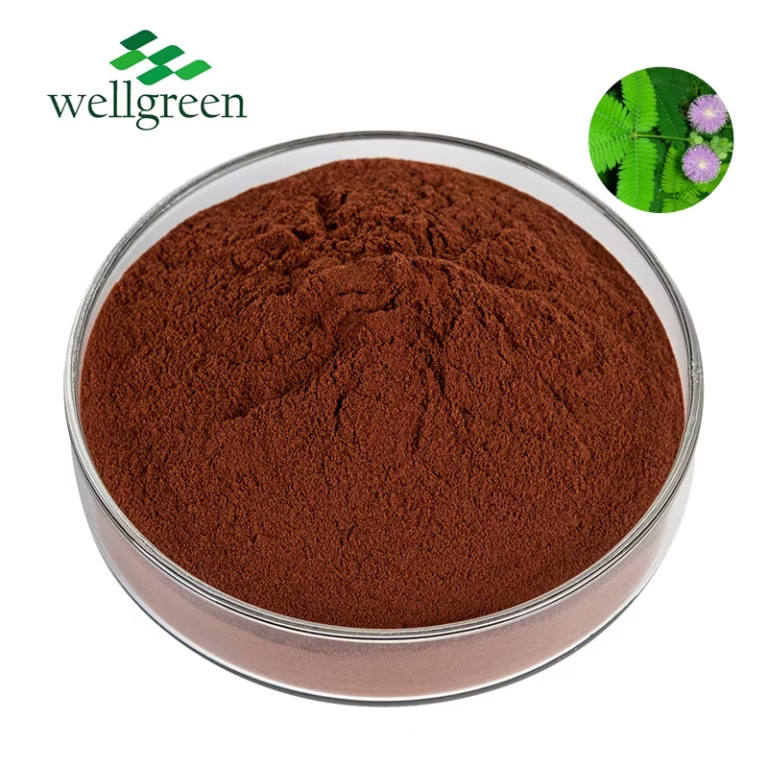
The bark of Mimosa tenuiflora, commonly known as quebracho blanco, have been utilized for time immemorial in folk medicine across the Americas.
Ethnobotanical studies reveal the efficacy of M. tenuiflora compounds in treating a diverse range of ailments, including inflammation.
Locals utilize the extract in various forms such as teas to treat symptoms.
Some key properties of M. tenuiflora encompass wound healing, and it is also believed to possess sedative properties.
Comprehensive Profiling of Mimosa tenuiflora Root Bark Extracts
This study focuses on analyzing the phytochemical composition of Mimosa tenuiflora root bark extracts. The isolation methods employed involved multiple solvents, including ethanol. The resultant extracts were then subjected to a battery of analytical methods such as thin-layer chromatography (TLC) to identify the predominant phytochemical molecules. Preliminary results reveal the presence of a range of secondary metabolites, website including terpenoids, which are known for their pharmacological properties. This comprehensive phytochemical analysis aims to provide valuable insights into the benefits of Mimosa tenuiflora root bark as a source of medicinal remedies.
Historic Uses and Potential Medicinal Benefits of M. tenuiflora Root Bark
M. tenuiflora, a plant renowned for its distinctive root bark, has been utilized in traditional medicinal practices for epochs. Indigenous communities have long recognized the medicinal properties of this potent ingredient. The root bark is customarily processed and administered to alleviate a range of ailments, including digestive issues.
Contemporary research is beginning to investigate the efficacy of M. tenuiflora root bark in offering medicinal benefits. Studies have revealed that certain elements present in the bark may possess antiviral properties, contributing its potential to combat a diverse array of diseases. Furthermore, preliminary research suggests that M. tenuiflora root bark may also possess cognitive-enhancing effects, though more thorough studies are required to confirm these findings.
Pharmacological Activity of Mimosa tenuiflora: A Review of Root Bark Studies
Mimosa tenuiflora, commonly referred to as the jurema plant, has a extensive history of cultural medicinal practice in South America. The root bark of this variety is particularly recognized for its diverse therapeutic properties. Numerous investigations have analyzed the potential benefits of M. tenuiflora root bark, revealing a range of compounds with promising biological activity.
- One aspect of particular attention is the immunomodulatory potential of M. tenuiflora root bark extracts.
- Initial evidence suggests that these extracts may modulate the immune response, potentially providing alleviation from various inflammatory conditions.
- Moreover, studies have indicated that M. tenuiflora root bark may possess antioxidant properties, which could offer benefits to human health by reducing oxidative stress.
The complex nature of M. tenuiflora root bark composition and its capabilities for therapeutic uses warrant further research. As research advances, a more comprehensive understanding of the pharmacological effects of M. tenuiflora root bark may emerge, potentially leading to the development of novel and effective medicinal interventions.
Extraction and Analysis of Bioactive Substances from *M. tenuiflora* Root Bark
This research focuses on the isolation of medicinal molecules from the root bark of *M. tenuiflora*. Numerous extraction methods, utilizing solvents, will be applied to obtain a variety of extracts. The identification of these extracts will involve methods like spectroscopy and molecular characterization. The biological properties of the isolated molecules will also be assessed using model systems.
The objective of this research is to identify and characterize effective compounds from *M. tenuiflora* root bark with potential applications in drug development.
Delving into the Anti-inflammatory and Antioxidant Properties of Mimosa tenuiflora Root Bark
Mimosa tenuiflora, commonly known as the Horse tree, is a plant native to tropical regions. Recent research has focused on its {potentialuses for human health, particularly concerning its immunomodulatory and antioxidant properties. The root bark of Mimosa tenuiflora is a rich reservoir of bioactive molecules such as phenols, which have been shown to exert potent influences against inflammation.
- Studies have demonstrated that extracts from Mimosa tenuiflora root bark can potentally reduce the production of inflammatory mediators in both *in vitro* and *in vivo* models.
- Additionally, these extracts have exhibited notable protective effects by trapping harmful free radicals, protecting cells from damage.
These findings suggest that Mimosa tenuiflora root bark holds promise as a {naturalsupplement for various inflammatory and oxidative stress-related conditions. However, further research is needed to fully elucidate its mechanisms of action and optimize its therapeutic applications.
